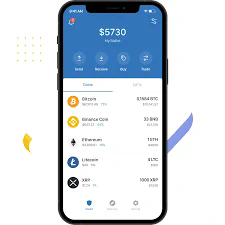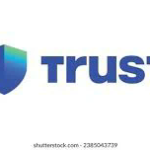Can Trust Wallet be Traced? A Comprehensive Analysis of Privacy and Security in Cryptocurrency Wallets
### Introduction: Understanding Trust Wallet
In recent years, the adoption of cryptocurrencies has surged, leading to the emergence of various wallets designed to facilitate transactions and secure digital assets. One of the most popular mobile wallets is Trust Wallet, acquired by Binance in 2018. It provides users with a simple interface to manage their crypto assets while maintaining control over their private keys. However, questions surrounding the privacy and traceability of such wallets often arise. This article aims to delve into whether Trust Wallet can be traced and the implications of privacy in the world of cryptocurrencies.
### The Nature of Cryptocurrency Transactions
#### Blockchain Fundamentals
To grasp whether Trust Wallet can be traced, it’s essential first to understand how cryptocurrency transactions work. Most cryptocurrencies operate on decentralized ledgers called blockchains. These ledgers record all transactions in a public, immutable manner.
Every transaction consists of inputs, outputs, and a digital signature that validates the transaction. While the wallet addresses involved in these transactions are visible on the blockchain, they do not directly disclose the identities of the parties involved.
#### Pseudonymity vs. Anonymity
Cryptocurrency transactions are often characterized by pseudonymity rather than true anonymity. Pseudonymity means that while transactions are not linked to real-world identities, they are attached to unique wallet addresses. With the right tools and techniques, it’s possible to trace transactions and link wallet addresses back to their owners, especially if users have disclosed their identities during trades or on exchanges.
### Trust Wallet’s Structure and Features
#### User Control and Private Keys
Trust Wallet stands out among other wallets due to its focus on user control. Unlike custodial wallets where third parties manage your funds, Trust Wallet is a non-custodial wallet. Users hold their private keys and, consequently, have complete control over their digital assets. This model ensures that transactions are conducted directly on the blockchain without intermediary oversight.
#### Multi-Currency Support and DApp Integration
Trust Wallet supports a wide range of cryptocurrencies and tokens, allowing users to manage various digital assets in one place. Additionally, it integrates decentralized applications (DApps), providing users with opportunities to engage in decentralized finance (DeFi) services. However, these features can inadvertently increase the chances of traceability if users are not cautious.
### Factors That Influence Traceability
#### Transaction Patterns
The traceability of transactions from Trust Wallet can largely depend on user behavior. For instance, frequent transactions between public addresses may draw attention and lead to a higher probability of being traced. Furthermore, if a user transfers funds to a centralized exchange to cash out, they essentially expose their identity linked to the wallet address.
#### Use of Mixed Services
To enhance privacy, some users turn to coin mixing services, which obscure the transaction trail by blending coins from different users. However, these services carry their own risks, including potential exposure to scams and regulatory scrutiny.
### Analyzing the Blockchain Tracing Landscape
#### Blockchain Forensics
Various companies specialize in blockchain analysis and forensics, utilizing sophisticated algorithms to trace transactions. These organizations can identify connections between wallet addresses, track the flow of funds, and uncover complex networks of activity. If Trust Wallet users connect their wallets to exchanges or engage in identifiable activities, their transactions can be traced back to them with relative ease.
#### Law Enforcement and Regulatory Scrutiny
Regulatory bodies worldwide are increasingly focusing on cryptocurrency and its traceability. They often collaborate with blockchain analysis firms to monitor suspicious activities. In certain jurisdictions, users are required to provide identification when using exchanges, revealing links to their wallet addresses.
### Privacy Measures for Trust Wallet Users
#### Maintaining Anonymity
While no method guarantees absolute privacy, users can take steps to enhance their anonymity when using Trust Wallet. This includes:
– **Utilizing the Tor Network:** Accessing Trust Wallet through Tor can help obfuscate IP addresses, adding an extra layer of privacy.
– **Creating New Wallets for Different Purposes:** By using multiple wallet addresses for various transactions, users can reduce the likelihood of linking all their activities to a single address.
– **Avoiding Public Wi-Fi:** Connecting to unsecured networks increases the risk of interception and potential tracking.
### Assessing Trust Wallet Security
#### Backup and Recovery

Trust Wallet provides an option to back up the wallet using a mnemonic phrase. It’s crucial for users to store this phrase securely, as anyone with access to it can ultimately control the wallet and its funds. If the mnemonic phrase is leaked or intercepted, it compromises the wallet’s security, making it susceptible to theft.
#### Regular Software Updates
Maintaining up-to-date software is vital for all users, as developers regularly patch vulnerabilities that could be exploited for unauthorized access. Trust Wallet frequently updates its app to reinforce security and introduce new features.
### The Role of Community and Education
### Engaging with the Crypto Community
The cryptocurrency community plays a crucial role in educating users about privacy practices. Forums, social media groups, and educational platforms provide insights into best practices for maintaining anonymity and security when using wallets like Trust Wallet. Engaging with these resources can help users remain informed about potential threats and security measures.
#### Importance of Self-Education
Users must take their education into their own hands. Understanding the implications of traceability, familiarizing themselves with privacy-enhancing tools, and staying updated on evolving threats can significantly mitigate the risks associated with using Trust Wallet.
### Conclusion: Balancing Privacy and Traceability
In conclusion, while Trust Wallet offers a certain level of privacy due to its non-custodial nature, it is not immune to traceability. The foundational principles of blockchain, along with user behavior and interaction with external services, can increase the likelihood of transactions being traced back to an individual. Therefore, users must be proactive in managing their privacy by employing strategies to disguise their transactions and be mindful of their interactions within the cryptocurrency ecosystem.
As cryptocurrencies continue to evolve, so too will the landscape of privacy and security. Trust Wallet users should strive for a balanced approach to their assets, combining the benefits of self-custody with an understanding of the limits of privacy in the blockchain world. Ultimately, staying informed and educated is key in navigating the complex interplay between anonymity and traceability in the realm of digital currencies.


